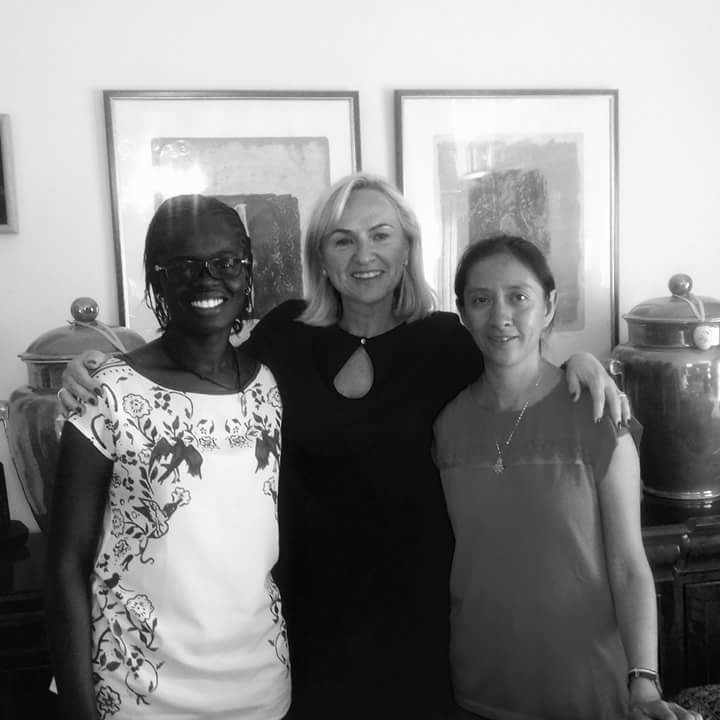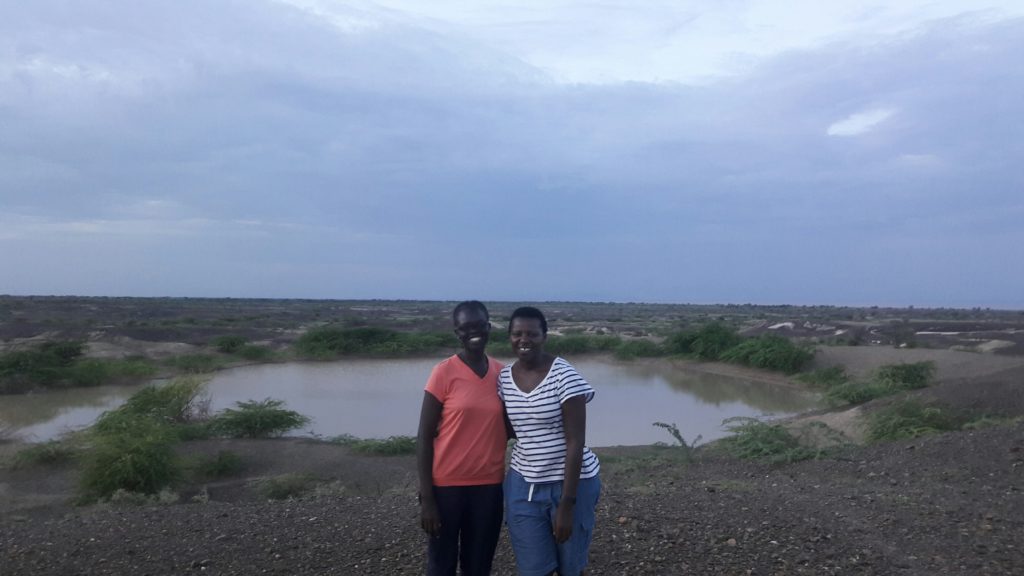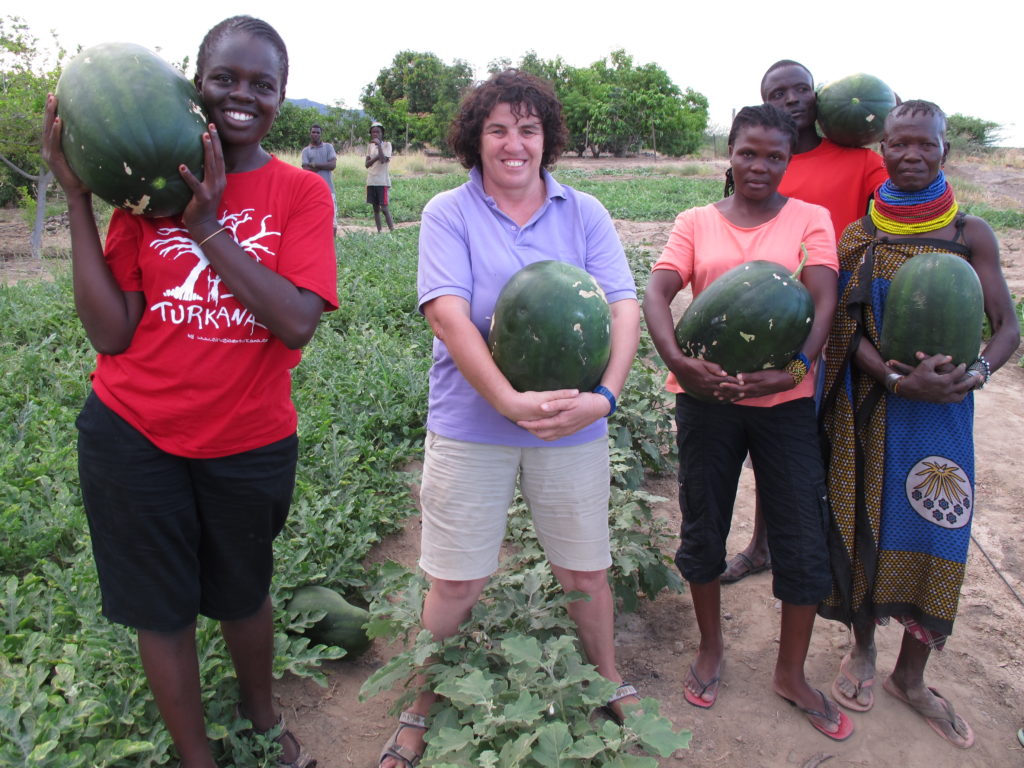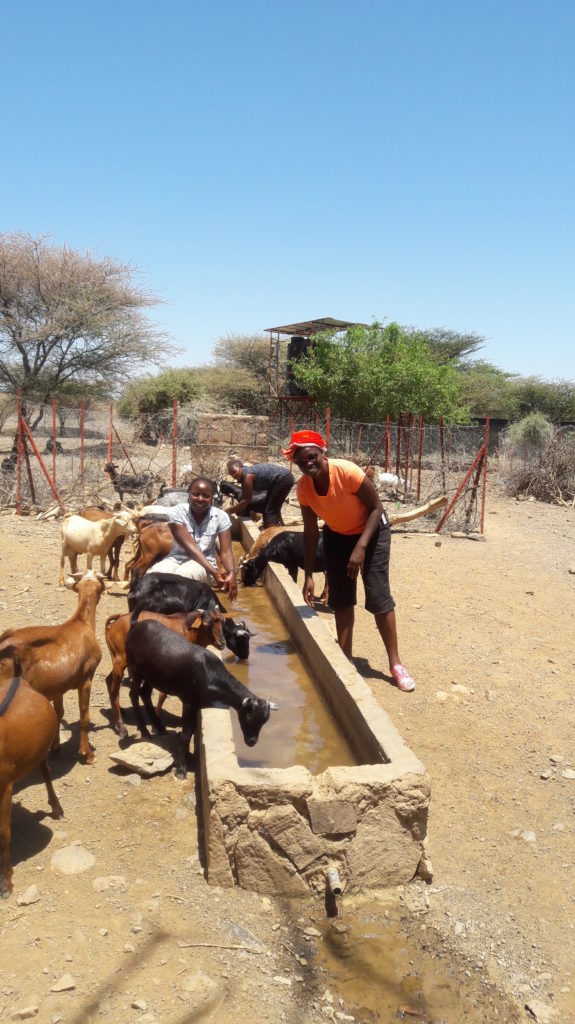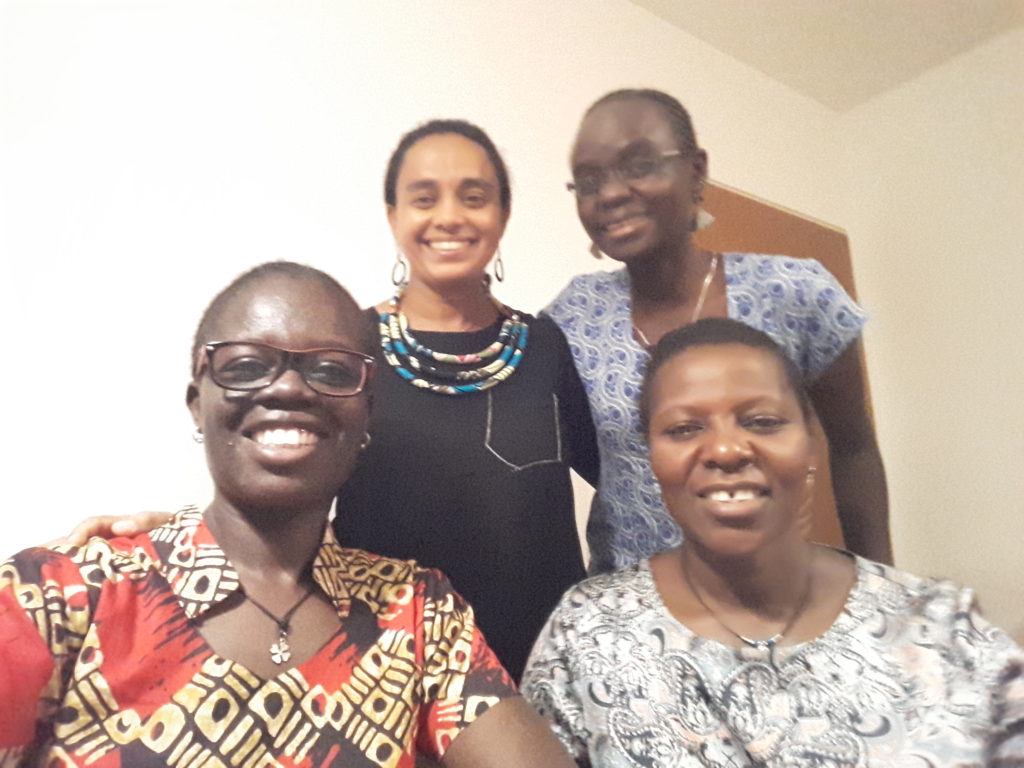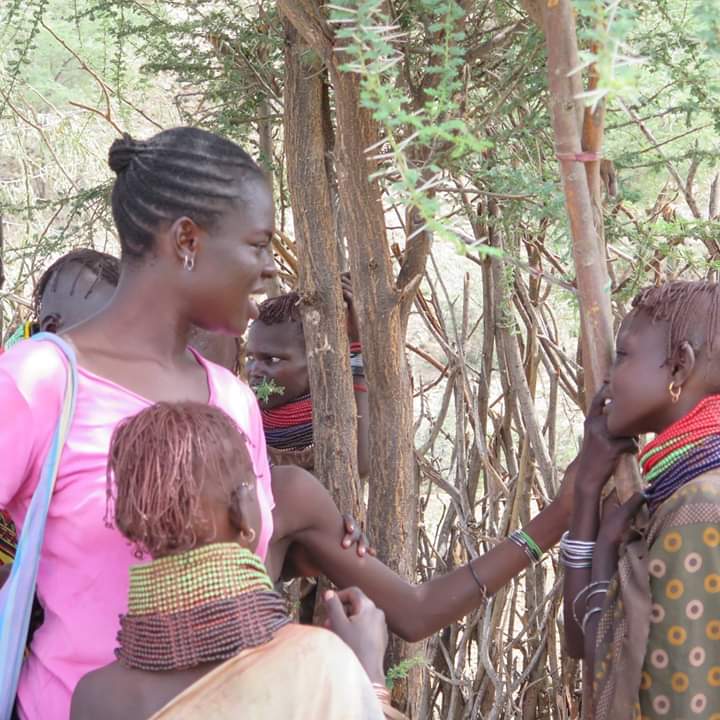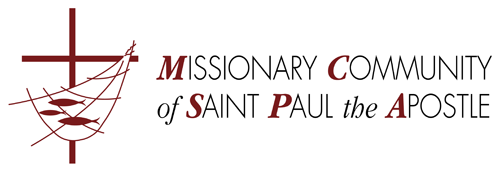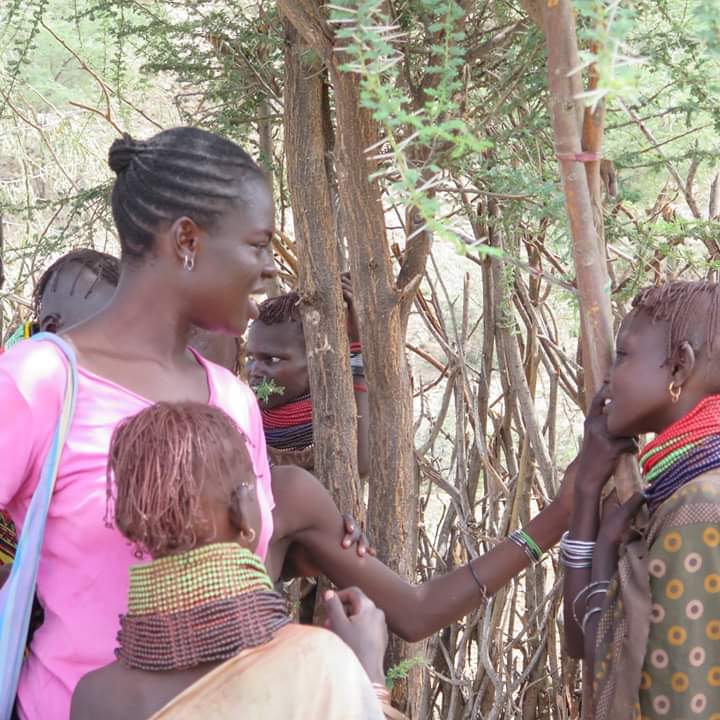Never in my youth did I plan on visiting Turkana, and even less did I imagine that I would be living here. I did not even think that I would be able to speak and write in other languages apart from English and Kiswahili. And this was an absolutely new world that was opened to me thanks to the Missionary Community of St. Paul the Apostle (MCSPA) and especially Fr. Francisco Andreo, the founder, and Fr. Francis Teo, who invited me to participate in their vision and experience. Thus I was able to see things differently and discover in my life the value of directing my gaze towards others and to help them, in small gestures, to discover Jesus in this way: “Because I was hungry and you gave me food; I was thirsty and you gave me to drink; I was homeless and you gave me a shelter; I was naked and you clothed me; sick and you visited me; in prison and you came to see me.” (Mt. 25:35-36)
In those times, travelling for two days by road was something unimaginable which only a few crazy people would have done. In addition, it was very adventurous to go to a place like Turkana taking into account that people from the southern part of Kenya, like me, do not know its history or culture, and that most of us find it difficult to recognize it as a part of Kenya.
I grew up in Nairobi and was fortunate enough to belong to a generous and very Catholic, middle class family (as they are described these days). My parents had to work very hard to make sure that their children enjoyed a decent education, have food on the table every day and that they grow to be good and God-fearing people.
Living in this environment, I grew up believing in certain values: there was need to study hard, get good results, look for a good job, help our parents and siblings so that they have a good life, get married and continue doing the same with our children, and they with their children. I did not think that I could see things from a different perspective. But this journey to Turkana helped me to undo the prejudices that I had, including towards my own family, like for example, that we were the poorest in the neighbourhood because we did not own a car or did not eat meat every week. It was only when I saw the poverty that was in Turkana, I realized that we were very privileged indeed!
I knew about the MCSPA through my cousin George Ouma, who in those days was living with the missionaries, with Fr. Francis in particular – and he wanted to be a priest like the other missionaries. He came to my home and narrated to us what he was doing in Turkana and from then on, I felt a great urge to go there too. This was only to know this interesting but strange place called Turkana.
The journey was very, very long. The two days of travelling appeared unending and I thought that we would never arrive. Fr. Fernando Aguirre was driving a 4-wheel drive vehicle. It was my first time to ride in a 4-wheel drive vehicle apart from only seeing them in movies! The car, filled to the brim with foodstuff, medicines, furniture, chicks, saplings with only a little space in which we fit four people in the pick-up. We travelled with some Turkana boys namely, Napocho, Ekalukan and Morita. They explained to me little details about Turkana. These stories gave me the morale and illusion to continue with the journey and slowly by slowly, I overcame the initial fear and prejudices about this very remote area.
I remember we stopped somewhere during the journey and Fr. Fernando, Natalia, one of the lay missionaries, and the boys brought out a basket, and all of a sudden we made a wonderful improvised picnic with Spanish omelette, bacon, mangoes and water – a complete meal! This was another small gesture that made me change my way of thinking and helped me look at things in a different way. I never thought of carrying food during a trip, I always thought that one could stop and go to the shop and buy it. To my surprise, Fr. Fernando told me: “Even if you had the money, where are the shops to buy? If you want to be a good missionary, you have to be prepared to think of others first before yourself.”
As we approached Turkana, I realised that the landscape had become very dry and sparse as we could only see some camels and goats crossing the road once in a while and small groups of huts made of sticks and branches. The boys explained to me that those were the houses of the people, and I thought to myself, “But where are they taking me? This appears like the end of the world!”
Finally we arrived at Nariokotome Mission. There, after two days of travelling, I said: “Finally we are at home”. We offloaded everything from the car and I was taken to a house by one of the women missionaries who told me, “This is your room, please take a shower. We will have lunch in an hour’s time and later you will go to rest.” I gave a sigh of relief … and retired to my room!
Some few minutes later, I heard a call of “Emergency! Emergency!” When I looked out through the window, I saw Natalia, who was a medical doctor as well, running towards the car. I went out and inquired what was happening. She told me “Board the car and let’s go! We are going to see to a pregnant woman who is unable to give birth.” I went into the car and she drove – like one doing the Safari Rally competition – up to Riokomor in the mountains. It was a very bumpy ride. On arrival, we met a pregnant woman who had been in labour for two days without delivering; she was very anaemic and did not have much strength. Dr. Natalia took the “basket” of the car and prepared tea with a lot of sugar, gave it to the lady to drink, and we then put her into the vehicle and hurried back to Nariokotome Mission because the main dispensary is located there.
After forty minutes bouncing along on the track, those at the back of the pick-up shouted to us to stop. When we alighted to see what the commotion was all about, we discovered that the baby had already been born! I understood nothing at that time, but I was just very happy because the lives of the mother and baby were no longer in danger. When we arrived at Nariokotome, Natalia explained to me that thanks to the cup of very sweet tea that she had given the mother to drink and all the bumping around of the car, the mother was able to gather sufficient strength to muster the contractions and to give birth.
Since small details such as these occurred severally during my stay there, they definitely made me look at things in their proper perspective and see things differently from how I did before.
I was in the mission for two months helping in whatever way I could: in the kitchen, in the garden, at the mobile clinic and nutritional centre, cleaning etc. In summary, I was doing many things that I had not done before in my own home. From the first day, I felt more as one of the community rather than a visitor, despite the fact that they were people from different countries: Kenyans, Colombians, Venezuelans, and Spanish. There was something that united them: they all loved.
I went back to Nairobi and began to study. Six months later after my experience in Turkana, when I had already forgotten that way of life that I had experienced, my cousin George arrived again and asked me if I would like to go for a Mass in which the missionaries had invited me. Although I had already been for mass, I went again. There, I met again Fr. Paco and Fr. Francis. It was a simple Mass with a few persons. However, I felt something that I do not know how to explain. Something happened within me that took me back to the same happiness that I experienced during those first two months when I was in Turkana.
At that moment, I could not tell whether I had a missionary vocation. But this happiness, the importance of learning the concerns of others and directing one’s look towards the other were things that made me think again as to what I wanted to do and be in life. Through these small experiences that I have narrated, I discovered the treasure that was in Turkana with the Missionary Community of St. Paul the Apostle. The invitation to the Mass in Nairobi that weekday, the motivation from Frs. Paco and Francis to think of me and being concerned about inviting me, and later the spark that lit this flame inside me, and which slowly by slowly was fanned alive by people who thought not only of themselves, but rather wished to share their happiness with me and others. I believe that the combination of these small gestures, people and motivations ended up awakening this missionary call in me. If they would not have invited me to this Mass, I think I would have ended up doing what everybody else does: study, work, help the family, get married and have children. I thank Francis for inviting me to that Mass which eventually moved something in me!
This call within me, intensified by the people who have surrounded me during these 20 years, has been the motivation that made me into who I am and be where I am now, in the Mission of Nariokotome.
I would wish that God illumines and gives me the strength to be able to share all that I have learnt along this road, as it is said in the prayer of St. Francis of Assisi: “Make me a channel of your peace.”All that I do is first of all to thank God for giving me life, to my family, to the Missionary Community of St. Paul the Apostle and also the support and help that comes from my friends in Spain, Kenya, Singapore, Malaysia, Germany … They support us with their friendship, prayers and material assistance in order to do all these works.
During these years I have lived a multitude of experiences, sometimes good and sometimes bad. I have visited and lived in many different countries (Ethiopia, Colombia, Germany) with different people. I speak different languages, and all these have made me into a humble and, I would like to believe, a better person. It has also moved me to try and share my happiness with other persons of encountering Jesus in others through small gestures. I hope that my experience will help others encounter this same happiness, always carrying God’s smile to all places.
Lillian Omari, MCSPA
